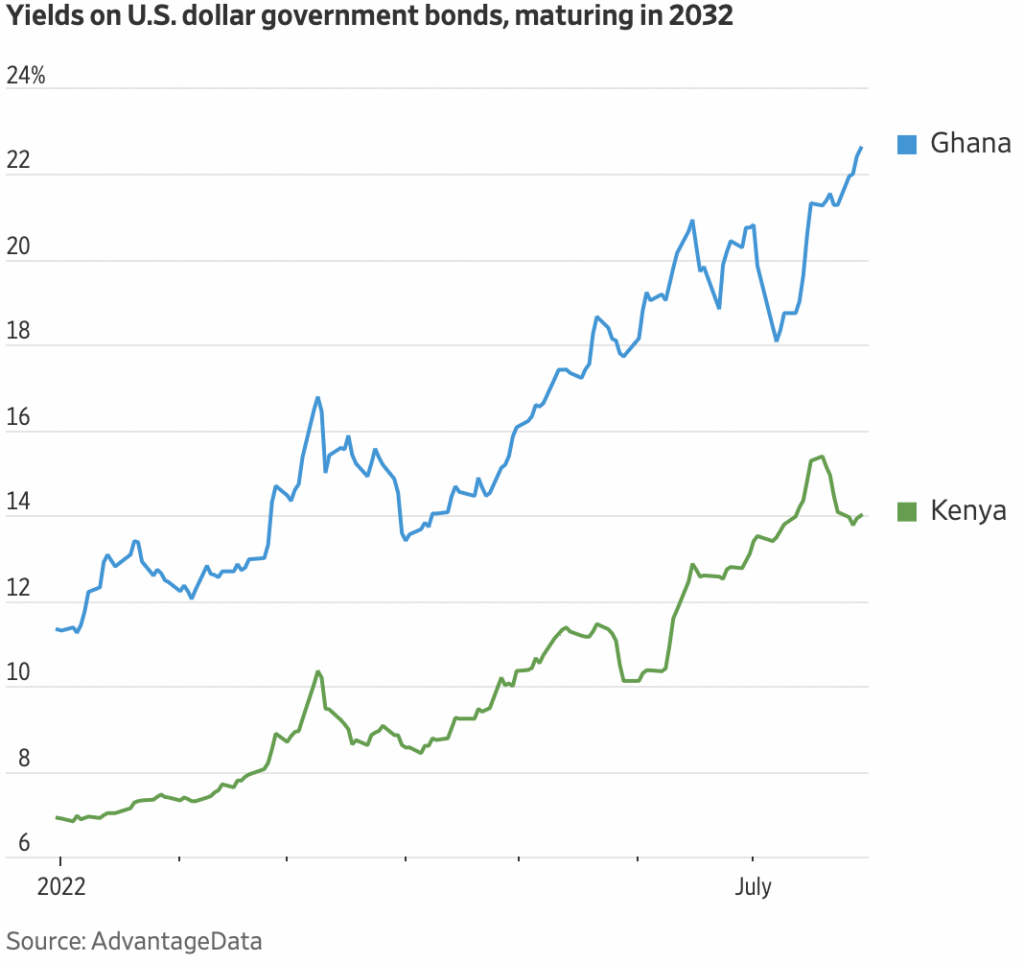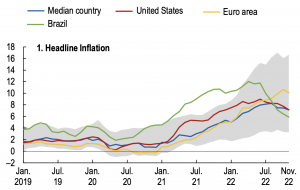Locked out of bond markets, EMs turn to riskier syndicated loans

Facing surging borrowing costs, balance sheet weakness, and a strong dollar, many emerging markets have been effectively cut off from international bond markets. EMs did not issue any foreign-currency bonds in July, with total issuance down by over half this year compared to H1 2021. The collapse of bond market activity marks the most significant pullback in lending since the 2013 “taper tantrum,” reports the WSJ’s Chelsea Delaney.
Decreased lending shows no signs of stopping, however, as Nigeria, Ghana, Kenya, and Côte d’Ivoire have canceled or delayed foreign currency issuances in the face of higher interest rates.

With increased spending needs and frozen out of bond markets, African countries have joined Middle Eastern governments in borrowing over $13 billion through riskier syndicated loans, according to Dealogic data.
Syndicated loans are debt pooled between private lenders that tend to offer shorter-term maturities on flexible rates that rise with the Fed’s interest rates. This type of lending, which played a large role in the debt crisis of the 1980s, is viewed as riskier than the more-transparent and lower-cost bond markets.
Bottom Line: This bump in short-term floating rate debt potentially sets up a wall of maturities later this decade that cannot be easily rolled over or refinanced.







